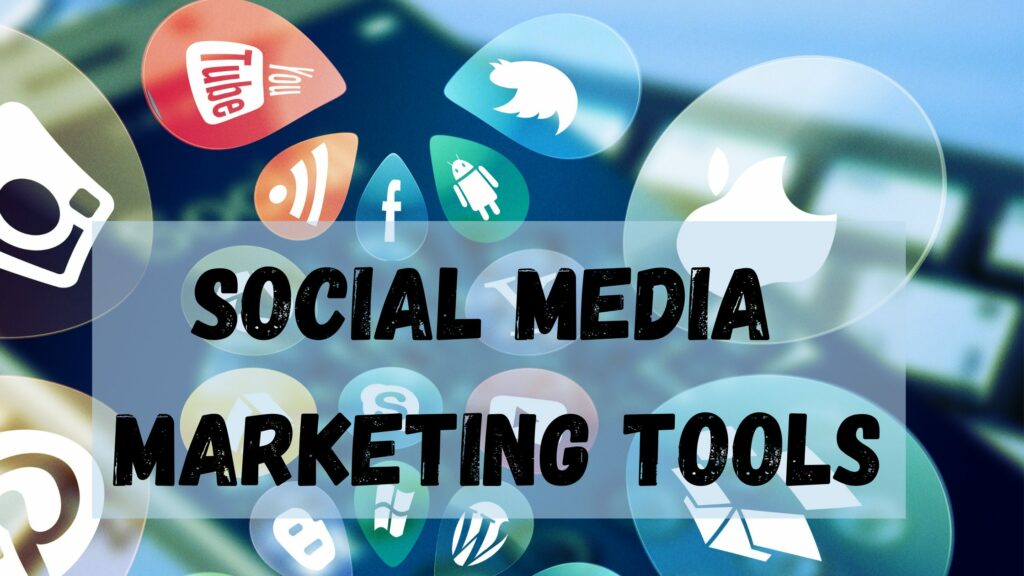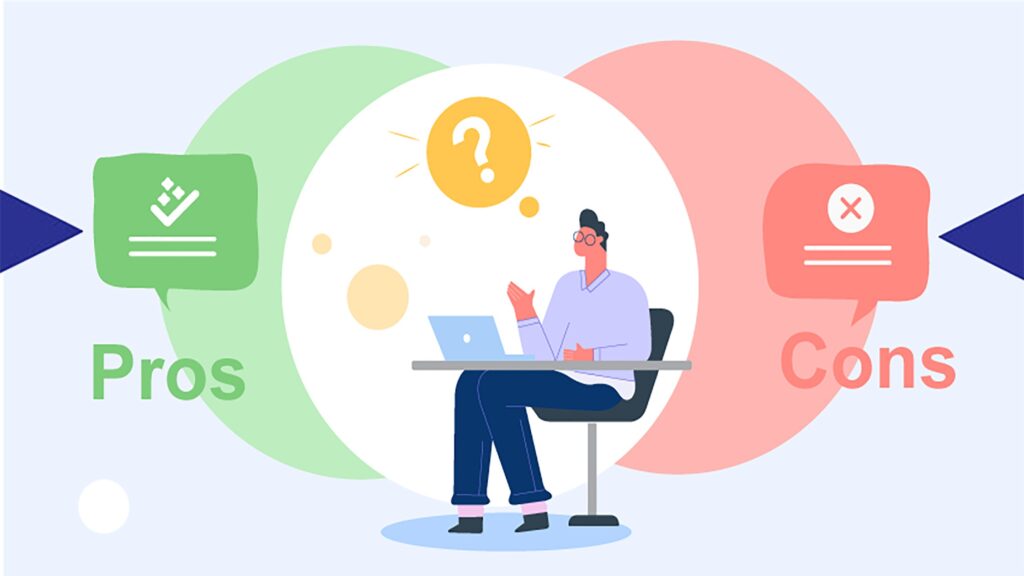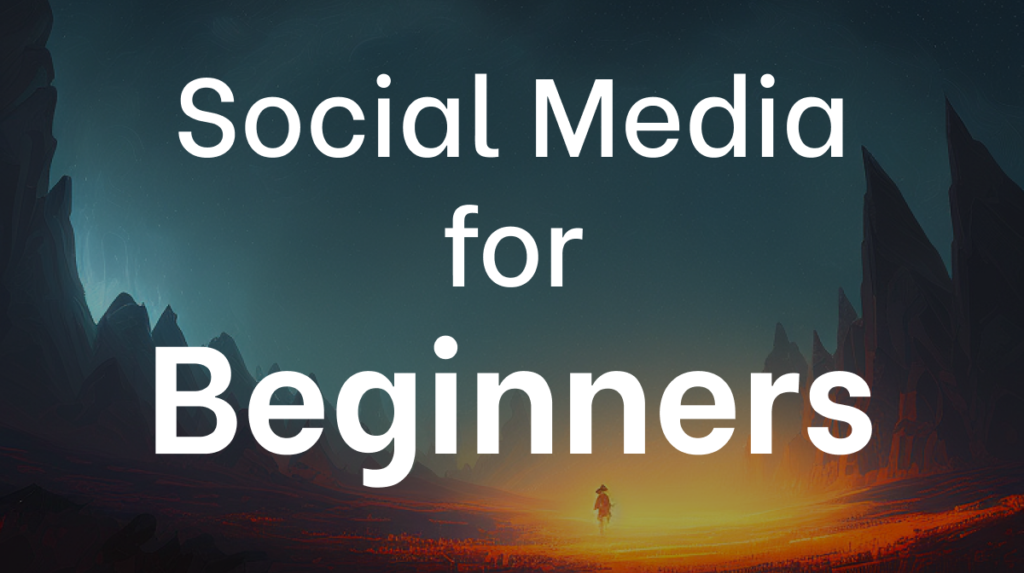Have you ever wanted to know what social media is all about, but felt overwhelmed by the prospect? You’re not alone—social media can be an intimidating subject to tackle.
But don’t let that stop you! We’ve written this guide to help beginners unlock the mystery of social media. Whether you’re a student, small business owner, or just someone curious about the topic, you can use this guide to understand the basics and get started on your own social media journey.
We’ll cover topics like understanding different of social networking sites and platforms and creating content strategies. We’ll also discuss why it’s important to build a brand online and give tips for measuring success. By the end of this guide, you should have a better understanding of social media and how to use it for your own objectives.
Introduction to Social Media

Social media has revolutionized how we communicate and engage with each other. In a nutshell, what is social media? it’s a virtual platform that allows people to share their thoughts, opinions and content with an audience. But it’s more than just a place to post pictures of your cats or what you ate for breakfast. It has become an important communication tool that can be used to build relationships, boost brand awareness, market research and reach new customers.
To truly understand what social media is and how to use it, it’s important to look back at its roots. Social media began in the late 1990s with the introduction of websites like Six Degrees, where people could create profiles and connect with others. This was soon followed by platforms like MySpace, which allowed users to share photos, music and videos, as well as blogs and forums for discussion. From there, social media exploded with the launch of Facebook in 2004 and Twitter in 2006—and the world has never been the same since.
Today, there are a variety of different types of social media applications and platforms available for users to choose from. These include photo-sharing apps like Instagram; video-sharing services like YouTube; microblogging sites like Twitter; business networking sites such as LinkedIn; news aggregators such as Flipboard; online communities such as Reddit; instant messaging apps such as WhatsApp; and several more!
What Are the Various Social Media Platforms?
Social media is everywhere. From the latest trends to newsworthy events, people are increasingly turning to these digital platforms to keep up with the world around them.
So just what is social media? In its simplest form, social media can be defined as a collection of web-based services that allow for the electronic communication, content creation and exchange among users. These platforms let users stay connected, interact with each other, share multimedia content, get news feeds and have conversations about the topics that interest them.
When it comes to the social news media platforms, there are many different ones out there. The three main ones are:
- Facebook: Facebook has been around since 2004 and remains one of the most popular networks today. It focuses on connecting friends and family through shared interests and conversations.
- Twitter: Twitter is a microblogging platform where users can post short updates (140 characters or less) known as “tweets” on any topic they like. People can also follow other accounts to keep up with news and trends on their timeline.
- Instagram: Instagram is all about visual storytelling, allowing users to share photos and videos with their followers quickly and easily. It also has plenty of creative tools like filters which make content creation a breeze!
Why Is Social Media Important in 2023?

Social media use has grown exponentially in the last decade and it shows no sign of stopping. It is now an essential tool for connecting with customers, staying up to date with trends, and driving sales. In 2023, social media is even more important as a result of the global pandemic.
Let’s look at some specific reasons why social media is essential for businesses in 2023:
- It helps companies stay connected to their customers during this difficult time. Customers rely on social media to get timely updates, ask questions, and give feedback directly to companies they follow.
- Social media also allows businesses to engage their customers one-on-one based on their interests and needs. From polls to live events and webinars, social media provides a great platform for engagement and dialog with customers around the globe.
- Lastly, in uncertain times like these when physical stores are closed or operating at limited capacity, businesses need a robust digital presence to keep their products or services available online and reach new potential customers. Social media provides an easy way to do that by allowing companies to showcase their products or services in creative ways.
In short, 2023 has made it more apparent than ever before that businesses need a strong social media presence in order to stay competitive and connected with their customers.
Read more:
What Are Some Tips for Getting Started on Social Media?
The first step to conquering social media is to find the social media refers platform that best suits your needs. Each social media platform offers something different: Instagram for visuals, Twitter for quick conversations, and YouTube for longer-form content.
To make the right choice, think about what you want to achieve. Are you looking to advertise a product? Connect with potential customers? Or just share some fun posts? Once you’ve narrowed your focus, research which platforms are best suited to your goals and interests.
Once you’ve established a presence on at least one other social networking site or media channel, there are a few tips that can help improve your online presence and boost engagement:
- Develop a strategy: Determine what kind of content resonates with your audience, when the optimal time for posting is, and how often you should post. Keep it consistent!
- Get creative: Think about visuals like graphics or photos that will help get your message across to potential followers.
- Interact with others: Follow accounts in your industry and engage in conversation with them—this will help create relationships with like-minded individuals and increase exposure for you brand or product.
- Monitor insights & analytics: Track how well your posts perform so that you can adjust your strategy when necessary and better optimize future posts
What Strategies Should I Consider for Successful Social Media Campaigns?

Social media isn’t as overwhelming as it may seem – with the right strategies and clear objectives in place, you can run a successful campaign. Here are a few tips to get started:
Understand Your Audience
The first step to a successful social media strategy is understanding your audience. Take the time to research and understand their needs, interests, and behaviors so you can create content that resonates with them.
Set Clear Goals
Before launching any social media campaigns, it is important to set clear goals that will help measure the success of your strategy. This could include increasing followers or engagement on social media posts, driving more web traffic or sales, or even increasing brand awareness. Having measurable goals will help you stay on track and measure your progress throughout the campaign.
Use Analytics
Analytics are an essential part of any social media campaign as they provide insights into user behavior and performance. Being able to monitor which content resonates most with your audience will allow you to adjust your strategy accordingly in order to optimize results. By understanding what works and what doesn’t, you can maximize the success of your campaigns through informed decision-making.
How Can I Measure the Success of My Efforts on Social Media?
If you’re a beginner to social media, it can be daunting to figure out a way to gage the success of your marketing efforts on different social platforms. Luckily, there are several metrics that you can use to get a sense of how successful your campaigns have been and what changes you should make in the future.
Followers
The number of followers you have on each platform is a key indicator of your success. Having more followers increases your visibility and attracts more potential customers. This metric is especially important for brands looking to establish themselves as influencers in their industries.
Reach
Reach measures how many people have viewed your posts or ads. It’s also an important metric for gaging brand awareness as it helps you understand how many people are familiar with your content and products.
Engagement
Engagement measures how many people interact with your posts or ads, such as by commenting, liking or by sharing links to them. It’s a good indicator of how interested people are in your content and how influential you are in the industry.
Traffic
Traffic measures how many visitors come to your website from social media channels — a key metric for brands looking to increase sales through their online presence. By looking at this metric regularly, you can get an idea of which strategies work best at driving customers to your site.
What Are the Different Tools Available to Use on Social Media?

Social media is a complex system, with many tools at its disposal. These tools can be combined in different ways to make users create powerful campaigns that reach a wide audience. Here are some of the most popular tools used on social media platforms:
Content Creation
Content creation is the process of sharing ideas and making new posts, videos, images and other types of content for your followers. You can make user generated content and also use this tool to repost content created by others and engage with them.
Analytic Tools
Analytic tools are designed to help you understand how your social media campaigns are performing and how they compare to competitors. These tools provide insights into user engagement, demographics, trends, and more.
Advertising
Advertising platforms allow you to create targeted ads that appear on social media channels. These platforms have powerful metrics that track user engagement with the ad, helping you optimize your campaigns for maximized results.
Automation Tools
Automation tools are designed to make it easier to manage multiple social media accounts at once by automating tedious tasks like posting or sending messages. This helps you save time and energy for more important tasks such as creating content or engaging with users.
By understanding the different tools available and how they can be used together, you can unlock the power of social media and effectively engage with your target audience.
What Are Different Types of Social Media?
Going onto social media can feel like unlocking a great, mysterious world of possibilities. And, in many ways, it is! There are several different types of social media platforms out there, each with their own strengths common features and weaknesses.
Popular Platforms
The most popular used social media apps mobile devices and sites include Facebook, Instagram, Twitter, and YouTube. Each platform offers different features to engage users, build communities and allow them to share content with one another.
Niche Platforms
But there are also some more niche platforms that people tend to specialize in certain industries or users create online communities for. For example, Reddit is focused on creating interesting conversations around various topics and can be used for marketing your brand. LinkedIn is great for connecting with career professionals and Quora for asking questions about various topics.
It’s important to consider what type of content you plan on sharing as well as who your target audience is when choosing which platform to use—because not all platforms will be the best fit for your specific needs. Do some research and get to know the various platforms before deciding where you’d like to create a presence online.
What Are the Benefits of Social Media?

When utilized properly, social media can be a powerful tool for businesses of any size. It can help you interact with your customers, increase brand recognition and loyalty, and reach new audiences.
Here are just some of the clear benefits social media can bring to your business:
- Improved conversions: Social media is an effective platform to share promotional content and discounts, which can lead to an increase in sales and revenue.
- Brand loyalty: Companies that engage with their customers via social media on a regular basis create loyalty and trust that other forms of advertising cannot replicate.
- Cost-effectiveness: Social media marketing is one of the most cost-effective techniques a company can employ as it involves minimal investment with potential for high ROI.
- Increased visibility: Social media allows companies to reach larger audiences more quickly than traditional advertising methods–and there’s no limit to how many people you can reach!
- Customer insight: Companies who use social media have access to valuable customer data that they can use to better understand their customers’ needs and preferences, allowing them to tailor their products or services accordingly.
It’s clear that utilizing social media effectively has much more potential than simply building followers or ‘likes’ – it allows you create relationships with customers, strengthen your brand and stay ahead of the competition – all with minimal effort!
Understanding Social Media Basics

Social media is a powerful tool and allows you to share updates, stories, photos, videos and more with your followers. It can be used to promote a business and connect with an audience. It also makes it easier to engage with potential customers.
Here are some key features of social media:
- Connecting people: Social media enables people to connect with one another, no matter their location or background.
- Networking opportunities: Social media provides networking opportunities through groups, pages, and hashtags. These allow users to engage in conversations with likeminded individuals and build meaningful relationships.
- Brand reach: Social media gives companies the ability to reach more people than ever before and connect with a larger audience.
- Sharing content: This includes both textual and visual content. It provides an avenue for users to share what matters to them with their followers and allows companies to showcase their products and services.
Social media works by allowing users to post content on their profiles that can be seen by other users who have chosen to follow them. This content is then shared in the form of interactions such as likes, comments, shares and retweets. The use of hashtags also allows posts to reach even further as other users may come across content that has been tagged in their searches or have similar interests.
Overall, social media provides many benefits such as improved customer engagement, increased brand awareness and increased website traffic which make it an invaluable tool for businesses of all sizes.
Social Media Platforms
From Facebook to Instagram, Twitter to LinkedIn, the range of social media platforms available can be overwhelming.
But with a bit of know-how, you can gain a better understanding of what each platform has to offer individual users and how they might fit into your overall strategy. Here’s an overview of the big four:
The original and arguably most successful social network, Facebook is generally focused on connecting friends and family. It’s ideal for building relationships with customers, whether through direct interactions or sharing content that encourages discussion and engagement with business community.
Focused mostly on visual content, Instagram is perfect for appealing directly to customers with beautiful photos or short videos, that capture attention and arouse emotion. Hashtags are an important part of the platform so make sure you use these to increase your reach.
Twitter is all about brevity, with messages limited to 280 characters per post. It’s best for small chunks of conversation in which users share quick status updates, and links to more in-depth content online bullying such fake news such as articles or blog posts.
This platform is geared towards professionals – think resumes and job postings rather than memes – so it’s ideal for businesses aiming to build networks relevant to their industry, recruit employees or promote their brand in the B2B space.
Pros and Cons of Social Media

Social media is a double-edged sword, and it’s important to be aware of both the advantages and disadvantages before jumping head first into its world.
Advantages
The main advantage of social media is that it can help to increase the reach of your message and connect you with the right people. With a few clicks, you can share information, engage in conversations, or find potential customers or partners. Additionally, social media provides increased visibility and enables businesses to gain valuable insights into their target audience.
Disadvantages
However, not everything has a silver lining when it comes to social media. For instance, as social sharing platforms become more popular, they also become overcrowded with too many users vying for attention. This can make it difficult to stand out from the crowd and quickly dilute your message. Additionally, users must be aware of the privacy settings on many social media platforms, in order to ensure that their content remains safe and secure.
Social media also has immense power over our lives: It influences how we interact with each other, share information, and even make decisions about what we view as correct or incorrect behavior. It’s important to recognize its impact as we continue to explore its potential as an incredibly powerful tool for communication.
Social Media Marketing
Social Media Marketing is the process of creating and sharing content on social media platforms with the goal of promoting a product, brand, or service. It is used to build relationships with target customers, gain visibility for your brand, increase website traffic, create market awareness, and ultimately get more leads.
By utilizing digital channels, like Facebook, Twitter, Instagram, LinkedIn, and YouTube—among many others—you have the opportunity to reach millions of people around the world. The right strategy can help you engage with these people and give you an edge over your competition.
When creating an effective social media marketing strategy it’s important to consider some key points:
- Developing a targeted content plan
- Creation of engaging content
- Interacting with current followers
- Incorporating ads when feasible
- Establishing goals and measuring results.
These steps can help you create a comprehensive social media plan that will engage followers and drive traffic to your website or product page. With a carefully crafted strategy in place, you’ll be well on your way to unlocking the mysteries of social media marketing today!
Social Media for Businesses

Creating a presence on the popular social media websites can have a big impact for businesses, both big and small.
Benefits
Social media can create unique opportunities to interact with customers and showcase products and services. Additionally, by creating content, businesses can increase brand recognition, help build customer loyalty, and even better understand their target audience through insights from analytics. As an added bonus, social media platforms are relatively low-cost forms of advertising compared to more traditional media methods such as print or television ads.
Setting Up a Presence
Creating a presence for your business on social media doesn’t have to be complicated or time consuming. Start with choosing the right platform to focus on – such as Facebook or a Twitter account – that will best serve your needs and target audience. Then explore different content types such as videos or blog posts that will engage that audience most effectively. Finally create a posting schedule to stay consistent and maintain engagement over time.
Best Practices
Once you’ve established your presence on popular social media sites and websites, it is important to adhere to best practices in order to maximize your efforts. This includes understanding the algorithms of the platform you are using, properly utilizing hashtags, optimizing for search engines, being strategic about timing posts for peak engagement periods, responding promptly and respectfully to customer inquiries, among other key strategies.
Social Media and Personal Branding

Personal branding is the process of creating an identity for yourself as a businessperson. This includes building an image, creating a unique voice, and developing a recognizable presence in your field. Social media offers a great platform for building that personal brand, allowing your personality to shine through and connecting you with a broader audience.
Here are some tips for crafting your own personal profile and brand on various social media sites:
- Establish your goals and objectives for each platform
- Research what other professionals in your field are doing
- Identify and use hashtags to join conversations
- Showcase your knowledge and expertise with educational content
- Interact with other industry professionals
- Become active on relevant groups
- Invest in quality visuals, including headshots, logos, and graphics that set you apart from the competition.
By taking these steps, you’ll be well on your way to establishing yourself as an expert in your chosen field while growing a large following of devoted fans. Social media can be intimidating at first, but when done right, it can be one of the most effective tools for building your personal brand.
Social Media and Digital Citizenship
Social media is a part of today’s society, and it’s important to make sure that users understand what it can do and recognize the rules and expectations associated with being a digital citizen. Digital citizenship is defined as the norms of appropriate, responsible digital technology use. Taking this into account, it’s important for social media users to be aware of how their actions can impact not only themselves but also others around them.
When using social media, there are a few best practices that could help you navigate your digital life:
- Develop an online identity that displays online professionalism
- Make sure all content is accurate before posting or sharing with others
- Keep your personal information private and secure
- Think twice before posting – be mindful of cyberbullying or other illegal activities
- Respect others’ opinions
- Limit time spent on social media to ensure healthy usage
- Remember to use proper grammar, spelling, and punctuation when posting messages
- Monitor your privacy settings regularly to manage how much information you share online
Social Media and Privacy

Social media is a great way to connect with friends and family, but it’s important to remember that it also exposes you to security risks. Many people are unsure of what privacy means when it comes to social media, and understanding the risks of sharing personal information is key in protecting your privacy.
The definition of privacy on social media is simple: anything you post or share on a social media site can be seen by other users and can be used against you. That means it’s important to be careful about what you post – especially when it comes to sensitive or confidential information. Even if your social media account settings allow only your friends or contacts to view your posts, keep in mind that they may also share that information with others.
To protect yourself from potential security risks, there are best practices you should follow when using social media:
- Don’t post personal information such as home address, phone numbers, email addresses or account numbers.
- Don’t accept friend requests from strangers — even if the profile appears legitimate.
- Don’t open any links from unknown sources.
- Avoid sharing too much about yourself online, such as vacation plans or bank details.
- If possible, restrict access to certain posts by using privacy settings within the platform(s).
- Make sure your accounts are protected with strong passwords and two-factor authentication enabled.
FAQs
What is a simple definition of social media?
What is a social networking site? Social media is the way in which users communicate with other registered users or members through a network and create information. Currently the offices manage Facebook, Twitter, Instagram, LinkedIn and the official YouTube pages.
What are the 6 types of social media?
Which social network type can you use for your business? Some of the six types — social networking and social bookmarking — include social media sites and microblog sites.
What is the main purpose of social media?
The use of Social Networks is widely used in various fields. Social Media has four main uses: Share, learn, engage & market.
Conclusion
Social media is a vital and ever-evolving part of our digital world. The appeal and power of social media lies in its ability to connect people and share ideas, through personal messages, pictures, and videos. It also facilitates communication and connection with audiences, both globally and locally.
For those just starting out with social media, understanding the different types of social media companies and platforms and the different styles of content can be intimidating. However, taking the time to understand the basics and how to best use each platform to your advantage can help you unlock the potential of social media for your brand and give you a powerful tool for connecting with customers. Don’t be afraid to experiment and explore the different types of social media platforms in order to gain insight into the best ones for you and your brand.

